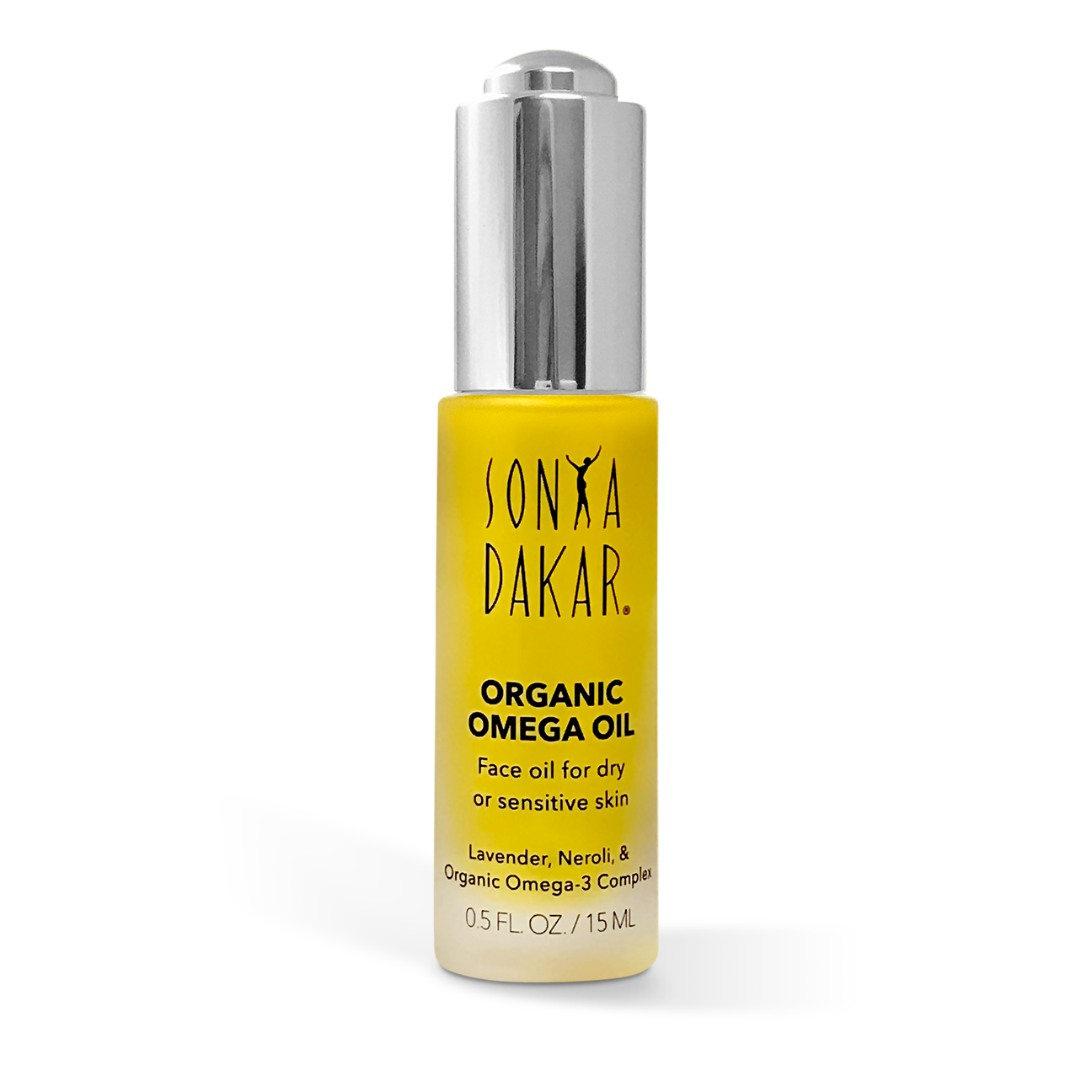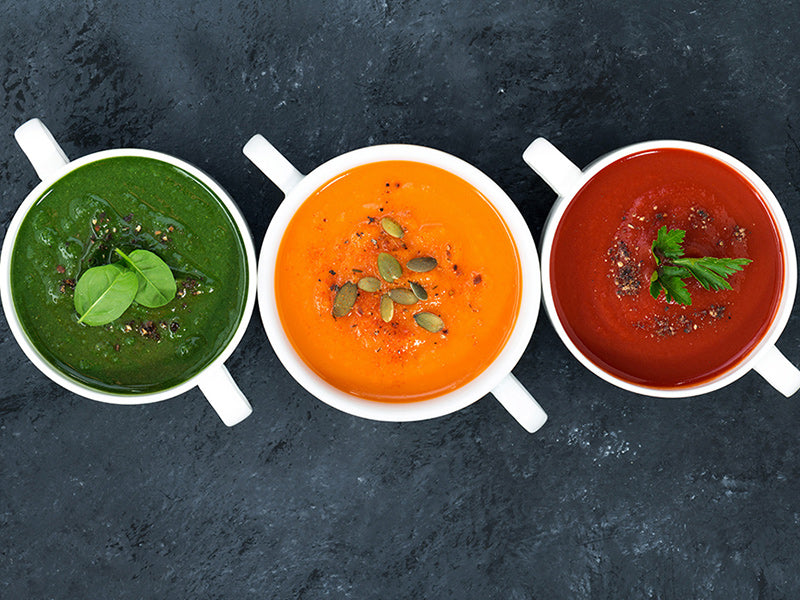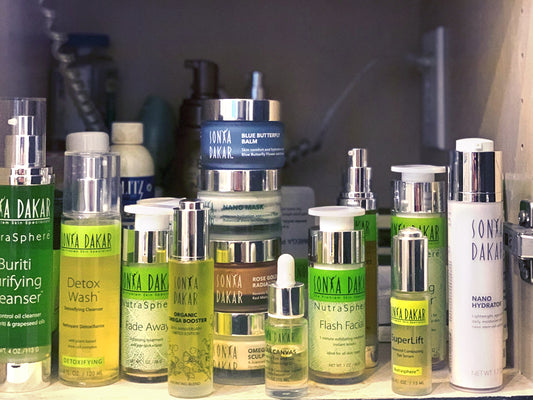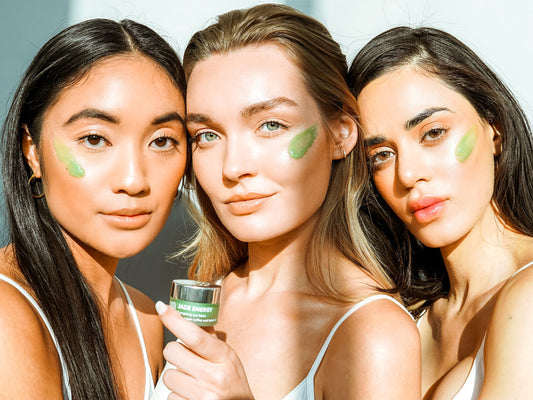
Weight loss and nutrition are issues that affect most Americans. Many of us are not aware that a proper diet is not just about calorie counting, rather it entails understanding what we're putting into our bodies and how those foods can directly affect our health. In this segment of Sonya Summer Wellness, Mimi Dakar Berry talks to Rachel Beller, CEO and Founder of Beller Nutritional Institute, about finding solutions to weight issues, and whether there is a link between weight and breast cancer.
Mimi Dakar Berry with Rachel Beller on Facebook LivePosted by SONYA DAKAR on Wednesday, June 28, 2017
1. How did you get into Nutrition? What was your light bulb moment?
As a teenager, I struggled with weight issues, and can still relate with anyone going through the same thing. Twenty years ago, I lost my father to cancer and realized the ever-needed resources for nutritional support. I resolved to transform my pain into possibilities and promise for other patients and their families. Because there is such a strong connection between weight status and cancer incidence I decided to specialize in both weight loss and cancer prevention. I really enjoy sharing my knowledge as widely as possible, so I started speaking to groups and appearing on TV, in magazines, and online as America’s “Get Real” Nutritionist. So far, I got a chance to be the on-air nutritionist for The Biggest Loser, Good Morning America, The Today Show, The Dr. Oz Show, The Rachael Ray Show, CNN, and ABC World News Tonight, to name a few. Above all, I’m a spokesperson for the American Cancer Society and work closely with Susan G. Komen and numerous other community and health organizations.
2. What advice do you have for women who have a tough time fitting a healthy nutrition plan into their busy lifestyle?
I’d say find a system that works for you and your personal lifestyle. Everyone has different obstacles, different resources they can access. Good nutrition should improve your life, not complicate it. It’s all about finding the easiest solutions. Nutrition is about simplicity, purity and personal needs.
3. As a working mother and business owner, what techniques do you use for quickly relieving stress?
The best way for me to relax is to think about all the good things in my life and be grateful for them. I usually get to the office extra early in the morning just to take a few moments to reflect, I call it my ‘think-tank’ moment. Every day I ask myself ‘How can I be better today? How can I give more to those who are near and dear to me, the community, my patients and PowerPerks members?’ I think knowing the answers to these questions and doing my best to “add more good” helps me stay on track and not let the stress get to me.
Another one of my personal tricks of the trade is treating myself to a relaxing facial and skin nourishing foods such as antioxidant-rich berries, spinach packed with collagen-boosting vitamin C, flax or chia seeds and walnuts rich in omega-3s, and pure cacao (only the pure stuff) loaded with anthocyanins, to name a few.
When I get more extra time, like the weekends, I turn to an extra dose of family fun, acupuncture, hiking, and my own high-quality face treatments that I do at home – these can be particularly relaxing, because they can really make me feel like I have a little private spa right there in my house.
4. You link the topics of weight loss and breast cancer prevention together, why?
Scientific evidence tells us that there is an undeniable link between how much we weigh and breast cancer risk. Extra weight is one of the main contributors to the development of so many breast cancer risk factors: elevated insulin and estrogen levels, systemic inflammation and others, to name a few. Unfortunately, weight gain is also a possible side effect of cancer treatment and gaining weight puts patients at a higher risk of cancer recurrence and mortality. So, in some cases it’s a never-ending circle… This is why I designed a one-stop evidence-based online program PowerPerks that provides info, tips and recipes for women of all ages (including teens) so they can lose weight while enjoying some incredible breast health perks.
5. You recently wrote a book about Power Souping, why soup? Can you share one of your favorite recipes with us?
Souping is the new juicing – only better! The difference between souping and juicing is that souping is not just a trend, it can be a lifestyle. I usually describe souping with these four Cs: Cleansing, Controllable, Comforting and Convenient. It is everything you need in just one bowl: antioxidants, fiber, protein, healthy fats. You can make a large pot of soup and be done with cooking for a couple of days – just keep taking single servings with you to work and have leftovers for dinner.
My favorite recipe by far is the Debloat Me: Green Peas and Asparagus soup. All you need for it is avocado or extra-virgin olive oil, leeks, vegetable broth, green peas, asparagus and parsley. I like spicing it up with fresh thyme leaves and adding pesto pine nuts. Mmmm…It’s just so yummy! And so good for you!
6. Describe a typical day for you.
I start my day off with the typical mom duties: getting lunches ready and dropping off the kids. Once I get to my office, the first thing I do is have a ‘think tank’, one of those reflection moments I talked about earlier, and I’m prepared to start my work day.
I usually see most of my clients early in the mornings (Beverly Hills style is to get on the scale first thing in the AM : ) ). And after that, each day always has its own thing. It can be researching, writing articles and books, doing media interviews, community outreach, preparing for presentations, recipe development, food photography...The list goes on.
After work, I try to squeeze in a workout (at least 4 days out of the week), cook, have dinner with the family, help with homework, more research at home, relax, and get ready for the next day!
7. What app can you not live without?
MealLogger! It helps me keep an eye on my patients while providing them with instant feedback on their meal and snack selections, and gives me some cooking inspiration too.
8. List three items you always leave home with.
1) My tea supplies! This includes mint, parsley leaves, sliced turmeric root, and sliced ginger root. I simply steep and sip this drink every day. It’s packed with de-bloat and de-flame me properties and taste totally amazing.
2) My Lunch! I always plan ahead because I’m picky and don’t want to bother with ordering food, especially with my demanding schedule (my go-to standard is a power-souping all-inclusive meal in a jar topped with one of my power pantry spice combos)
3) An extra pair of shoes because I never know where I’m going after work.
9. What are your favorite healthy snacks for when you’re on-the-go?
-A couple dates stuffed with raw almonds, I call them ‘date boats’- they’re quick and give me a shot of energy while leaving the processed stuff behind.
-An apple - it’s easy, it’s filling and totally portable.
-Watermelon seeds-again, great source of protein and I can keep that in my purse all day.
-Enlightened-roasted broad beans - excellent protein on the go.
10. Are there any Nutrition myths out there that you want to debunk?
As a registered dietitian with a thriving practice in the heart of Beverly Hills I get to not only see but hear it ALL. Every myth, trick and trending cleanse or topic comes through the doors of the Beller Nutritional Institute. One of the latest has to do with calories - an obsessive topic. When it comes to weight loss does it matter where the calories come from? Is a calorie just a calorie when it comes to waistline expansion?
Let me put it this way – yes, all calories are equal only BEFORE we put them in our bodies. Now, are they still equal after we eat them? Well, here is where it gets a bit tricky. And that is because of the concept called ‘thermic effect of food’. These fancy-sounding words mean that each food requires the body to spend a specific amount of energy (AKA burn calories - Yay!) in order to digest it, extract and absorb nutrients from it. So, that means that the more energy a food requires for its own digestion, the less is left over for us to store—hello weight loss! You can think of it as an internal workout.
This concept was recently very well demonstrated by a study done at Pomona City College where they compared how much energy people spent on digesting a whole grain and natural cheddar cheese sandwich versus a refined grain-processed bread and cheese sandwich. The results were absolutely amazing –twice as much energy was spent on digesting the whole grain-natural cheese sandwich. So, while both wholesome and processed foods provide you with the same number of calories, your body has to work much harder to extract those calories from wholesome rather than processed food sources. It’s like taking the elevator and the stairs to get to the exact same place.
Bottom line - when it comes to weight loss and your health, eating wholesome foods and avoiding processed sources will yield a huge return. While it is still important to be aware of your calories even if they are coming from wholesome foods, counting them is not as important as minding where they are coming from.





